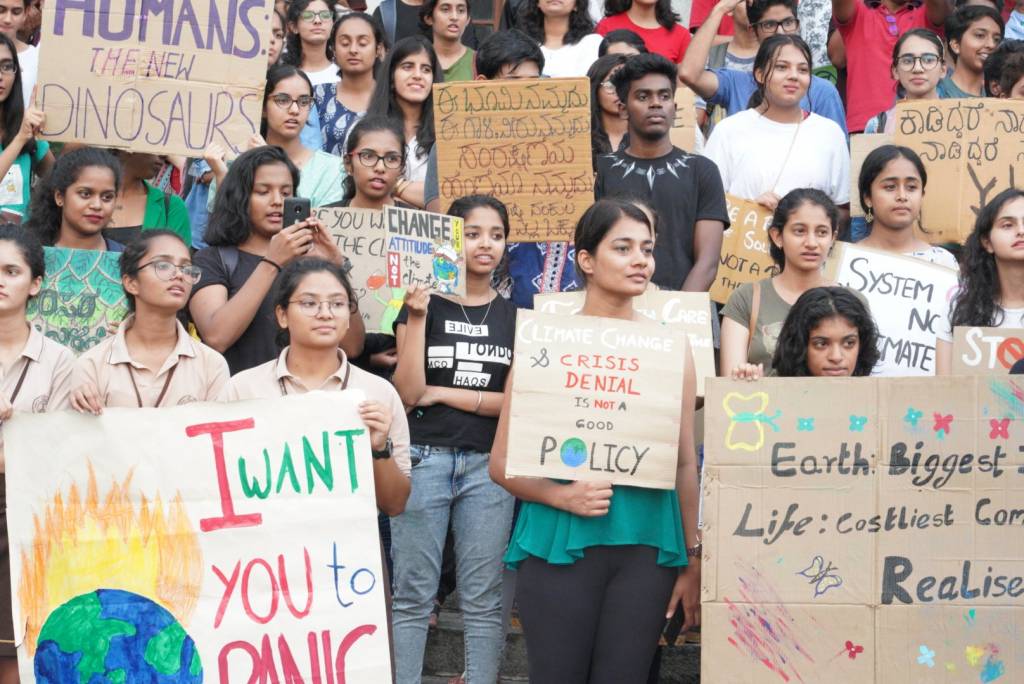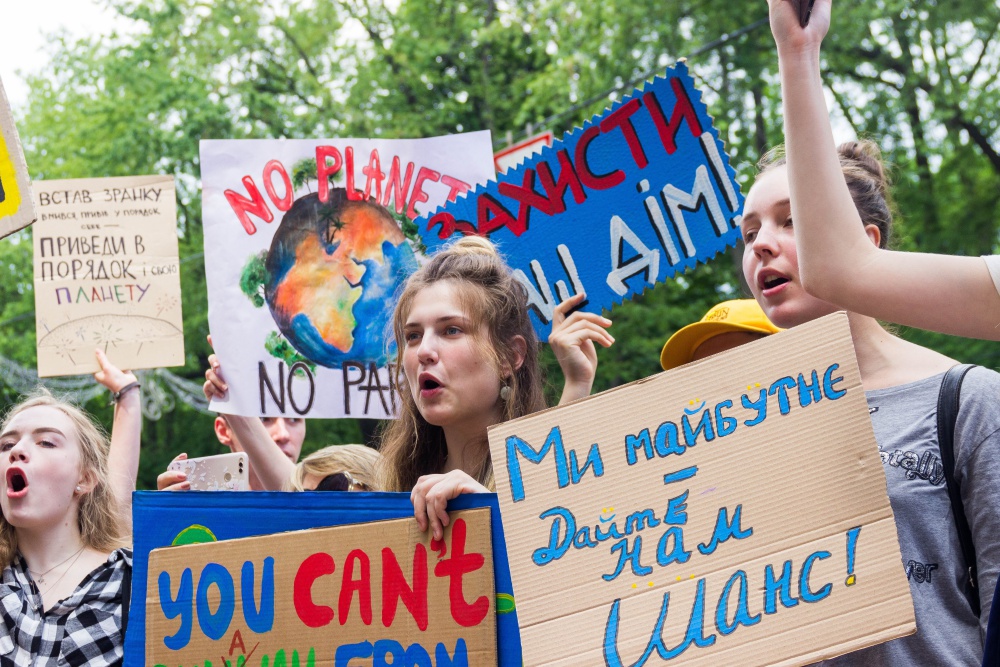Every Friday recently classrooms have grown quiet while streets worldwide have come to life again with the chants and cries of a new generation of climate activists. What started as a one-person protest by Greta Thunberg has grown to a movement of millions sacrificing their #FridaysForFuture in over 160 countries in at least 2000 locations.
School strikers voices have reverberated through the halls of power with moral authority and urgency in a way that has woken the world up to the true scale of the climate emergency we face.
In a powerful call to action published in The Guardian school strike organisers are calling on people of all ages to join them in the next massive Global Climate Strikes in September.
If you’ve been inspired by the school strikers, but you’re not sure how you can take action as an ally, read on for 3 meaningful ways you can show your support:
1. Join the Global Climate Strikes
School strikers are calling on everyone: young people, parents, workers, pensioners and all concerned humans to join massive climate strikes and a week of actions starting on September 20.
People all over the world will use their power to stop “business as usual” in the face of the climate emergency. Young people hope this moment will show that they have the backing of millions of human beings who have a growing dread about the climate emergency but who have so far stayed mostly on the sidelines.
Join young people in the streets to demand an end to the age of fossil fuels and emergency action to avoid climate breakdown. September 20 will kick off a global week of climate strikes, actions and activities
Pledge to join school strikers
2. Spread the word
It’s as simple as it sounds. Talk to everyone you know – young or grown-up – about the climate strikes, about what they’ve achieved already; and our role in supporting young people. Share with them your own reasons for wanting to see urgent climate action. Tell them about Greta’s message of climate emergency, or, even better, show them one of her powerful speeches.
Share with people this map of all the upcoming school strikes until September.

Students in Bangalore, India, on #climatestrike in front of their town hall, May 24
If you’re attending an upcoming school strike as an ally — make sure you let young protesters speak in their own words when you’re sharing content. You can do this for example by asking young people for a short statement on why they’re striking (ask permission to post on social media). Try to amplify voices of young people that you notice being underrepresented in media. Describe the atmosphere, photograph the funniest banners, film the best songs and have fun! And remember to add the #climatestrike and #fridaysforfuture hashtags!
If you’re a parent or guardian, make it explicit that you allow your kids to go on strike, if they want to. If you’re an employer do the same. Lead others by example.
Don’t underestimate the power you have to inspire your friends if you’re passionate about a cause.
But remember – your role is to listen and amplify the call to action from young people, not step in and take over. Make sure you hear the concerns, hopes and beliefs of young people around you. Take them seriously. Be their ally in conversations you have with other adults: be explicit about your support, help bring the message of the striking students into spaces where they can’t be present.
Share this video on Facebook and Twitter to let your friends and family know about the climate strikes and week of action coming up.
On May 24 the message from young people on #climatestrike in 133 countries got both louder and clearer: “The planet’s still burning. We’re not going anywhere. Who’s actually with us?” Join in this September 20 – 27 → https://t.co/MTIAHxZ9sN #FridaysforFuture pic.twitter.com/2lCF4zUk6X
— 350 dot org (@350) May 28, 2019
Share on Facebook Share on Twitter
3. Organise your community
Activate your own network (yes, you have one!) in support of the climate strikes. Think of the organisations, clubs or faith groups you belong to. Maybe you’re in a parents group, or a bookclub? Talk about the climate strikes at your next meeting; take to social media and share a public statement of support. Organise others for solidarity actions and events.
Take it even further: maybe you or your friends know a reporter at your local radio station or newspaper? Ask them to cover the climate strikes. Maybe you’re on good footing with a local politician or someone from your municipality? Get in touch and ask them to help amplify the climate strikes – or not to discourage the mobilisations or penalise striking students!
If you’re part of an existing climate campaigning group, think of how you can participate in or help organise around September 20 to keep the momentum going. Link your action explicitly to the school strikes (“We’re doing this because we’re answering the call of the striking students, and taking action”).
Check out this amazing new resource: Climate Resistance Handbook (and share copies with young organisers)

Students in Odessa, Ukraine, joined Fridays For Future on #climatestrike for first time, May 24
Think long-term: talk with your kids or other grown-ups about what could be done to keep up the momentum between now and 20 September. What are the practical things that are needed? Start a WhatsApp group, plan an informal get-together or a film evening to keep connecting regularly.
If you’re already a climate organiser, invite school strikers to speak at your upcoming events or meetings. How about inviting them write an email to your group list themselves? Make sure you locate and connect with any recent youth strike and other climate groups that have sprung up in your community to plan together towards September. One of the best ways to do this is through the #FridaysForFuture platform and searching on social media.